Why You Should Partner With a Workers’ Compensation Insurer Before Fall
As fall approaches, workplace injuries tend to rise due to shifting weather, heavier workloads, and seasonal hiring. Partnering with a workers’ compensation insurer ahead of time helps you prepare for these risks, reduce accidents, and avoid costly setbacks. Here’s why fall brings more claims, and how the right coverage can protect your business.
Why Workers’ Compensation Claims Rise in the Fall
Workers’ compensation trends tend to follow seasonal patterns, and fall is consistently among the most active times of year for claims. This increase is driven by a few specific factors:
1. Changing Weather and Environmental Hazards
Cooler temperatures, early sunsets, and wet leaves might seem like small changes, but they create new hazards across job sites, warehouses, and office environments. Slippery walkways, poor visibility, and colder working conditions can increase the risk of slips, trips, and falls. These incidents are among the most common causes of workers’ compensation claims, and they tend to spike in the fall.
For example, warehouse workers may experience more loading dock injuries due to rain-slicked surfaces. Outdoor crews might be impacted by unstable footing on leaf-covered ground. Even indoor environments aren’t immune; fall often means HVAC system changes, floor condensation, and holiday decoration hazards.
2. Increased Workloads and Deadlines
Fall also marks the ramp-up period for many businesses. Construction companies rush to finish outdoor jobs before winter. Retailers and distributors begin preparing for peak holiday demand. Food and beverage processors often increase production in advance of the end-of-year holidays.
These pressures can lead to fatigue, shortcuts in safety protocols, or lapses in training, all of which heighten the risk of injury.
3. Seasonal Hiring and Inexperienced Staff
Many businesses bring on new or temporary workers in the fall to meet seasonal demands. While necessary, this creates additional liability. Seasonal workers may not be as familiar with company safety practices or fully trained in equipment use. That lack of experience often correlates with higher injury rates.
Temporary staff also sometimes fall into a gray area in coverage if insurance policies aren’t updated to reflect their addition. A qualified workers’ compensation insurer can help you assess these coverage gaps ahead of time.
What a Workers’ Compensation Insurer Can Help You Do
Workers’ comp is a strategic tool for keeping your workforce protected and your business running smoothly. A dedicated workers’ compensation insurer offers more than just a claims safety net. Here’s how the right partner can make a difference before fall:
Risk Assessment and Policy Review
Your insurer should be reviewing your workplace risks with you at least annually. Fall is a perfect time to do this. A proactive partner can help evaluate whether your coverage reflects your current workforce, operating environment, and potential hazards.
This is especially important if you’ve expanded operations, added staff, or changed workflows in the past year. Adjusting policy limits before an incident occurs protects your business from surprises.
Training and Loss Prevention Support
Many leading workers’ compensation insurers provide safety resources, training materials, and even onsite evaluations. These tools help identify hazards before they lead to claims. Some insurers may offer tailored materials for seasonal onboarding or help implement fall-specific safety protocols.
Preventing even one injury can result in thousands of dollars worth of saved claims costs and keep your team healthy and productive.
Claims Process Preparedness
The last thing you want is to scramble when an accident happens. A trusted workers’ compensation insurer can help you establish a clear claims process ahead of time. That means educating your managers, ensuring your documentation is in order, and understanding how to report an incident quickly and effectively.
Preparedness reduces claim delays, ensures compliance with Missouri regulations, and demonstrates your commitment to your workforce.
Seasonal risks don’t stop with workplace injuries. Fall weather, increased foot traffic, and shifting operations can expose your business to broader threats. Learn how seasonal insurance coverage fills those gaps.
Actionable Tips for Reducing Fall Injuries
Before fall arrives, there are several steps every employer can take to minimize workplace injuries and streamline the workers’ compensation process.
1. Conduct a Fall Hazard Audit
Walk through your facility or job site with safety in mind. Are outdoor steps or sidewalks prone to getting slick with leaves or rain? Is lighting adequate as daylight hours decrease? Are there exposed cords or unstable ladders being used more often?
Take photos, document hazards, and prioritize fixes. Addressing these risks early reduces the chance of injury.
2. Review Your Return-to-Work Plan
Every business should have a return-to-work strategy in place. This helps reintegrate employees after a workplace injury and can reduce long-term claim costs. Review your policy with your workers’ compensation insurer to make sure it’s up to date and compliant with state guidelines.
Offering modified duties or transitional roles benefits the employee while controlling insurance costs and preserving productivity.
3. Reinforce Safety Training With Seasonal Staff
Onboarding seasonal employees doesn’t just mean paperwork and schedules—it must include safety training. Make sure all new hires know your emergency procedures, understand equipment safety, and feel empowered to report unsafe conditions.
Your workers’ compensation insurer may be able to supply training materials or even help deliver refresher courses tailored to fall hazards.
An Industry Snapshot: Who’s Most at Risk in the Fall Season?
Not all businesses face the same fall risks. But certain industries in Missouri experience a noticeable spike in claims during this season. These include:
- Construction: Fall often marks the final push to complete outdoor projects. Wet conditions, elevated work, and project deadlines increase risk.
- Retail: Slip-and-fall claims rise as foot traffic increases and stores begin staging holiday merchandise. Seasonal hires add exposure.
- Manufacturing and Logistics: Warehouse environments become busier during fall, and loading docks become risk zones with weather and daylight changes.
- Hospitality and Food Services: These industries often see increased hiring for end-of-year events and parties, creating risk from improperly trained or overextended staff.
No matter the industry, having a trusted workers’ compensation insurer by your side ensures these seasonal exposures don’t catch you off guard.
Why Timing Matters: The Advantage of Partnering Before Fall
If you wait until after an incident to review your insurance strategy, you’re already too late. That’s why it’s critical to engage your workers’ compensation insurer before fall.
By starting the conversation early, you’ll have time to:
- Adjust coverage for seasonal hires or expanded operations
- Conduct a full workplace risk assessment
- Implement targeted safety protocols
- Reinforce training across departments
- Establish a streamlined claims process in case something goes wrong
This proactive approach helps you reduce injuries, control premium increases, avoid fines for noncompliance, and build a culture of safety and accountability within your business.
Protect Your People and Your Business With the Right Insurer
Beyond checking a box, choosing the right workers’ compensation insurer is about finding a partner who understands your business, seasonal needs, and the risks you face.
As fall approaches, now is the time to get ahead of workplace safety challenges. Whether you’re managing a growing retail shop, running a busy warehouse, or coordinating job sites across Missouri, having a responsive, experienced insurer can make all the difference.
Partner With NEC Insurance to Stay Prepared and Protected
Our team is here to help you review your coverage, implement risk controls, and keep your operations running smoothly through every season. Schedule a fall policy review today before minor risks turn into major claims.
Share This Post
About Us
NEC Insurance supports Missourians with high-quality coverage for businesses and individuals. We apply over 45 years of experience to help you navigate the market and deliver the policies you deserve.











